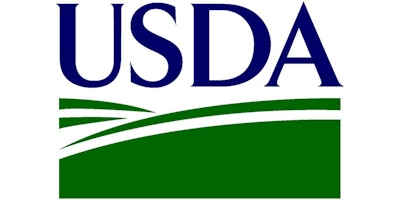
WASHINGTON, Oct. 25, 2017 (USDA FSIS news release) — The U.S. Department of Agriculture’s Food Safety and Inspection Service (FSIS) is issuing a public health alert due to concerns that poultry products produced by Mary’s Harvest Fresh Foods, Inc., a Portland, Oregon establishment, may be contaminated with Listeria monocytogenes. A recall was not requested because it is believed that all products are no longer in commerce and are past their “Best by” dates.
The ready-to-eat (RTE) kale and broccoli slaw salad with chicken items were produced from Oct. 6, 2017 through Oct. 10, 2017. The following product is subject to the public health alert:
- 8.75-oz. containers with “Kale & Broccoli Slaw Salad with Grilled Chicken Breast (Rib Meat)” with item #20346 and a “Use By” dates of: 10/12/17 through 10/16/17.
The products bear establishment number “P-39928” inside the USDA mark of inspection. These items were shipped to retail locations in Oregon and Washington.
The problem was discovered on Oct. 19, 2017 when the firm received notification from their broccoli supplier that the broccoli products used in the kale broccoli slaw with chicken salads were included in a U.S. Food & Drug Administration recall due to potential contamination with L. monocytogenes. The firm notified FSIS on Oct. 20, 2017. There have been no confirmed reports of adverse reactions due to consumption of these products. Anyone concerned about an illness should contact a health care provider.
Consumption of food contaminated with L. monocytogenes can cause listeriosis, a serious infection that primarily affects older adults, persons with weakened immune systems, and pregnant women and their newborns. Less commonly, persons outside these risk groups are affected.
Listeriosis can cause fever, muscle aches, headache, stiff neck, confusion, loss of balance and convulsions sometimes preceded by diarrhea or other gastrointestinal symptoms. An invasive infection spreads beyond the gastrointestinal tract. In pregnant women, the infection can cause miscarriages, stillbirths, premature delivery or life-threatening infection of the newborn. In addition, serious and sometimes fatal infections can occur in older adults and persons with weakened immune systems. Listeriosis is treated with antibiotics. Persons in the higher-risk categories who experience flu-like symptoms within two months after eating contaminated food should seek medical care and tell the health care provider about eating the contaminated food.
Consumers who have purchased these products are urged not to consume them. These products should be thrown away or returned to the place of purchase.






















